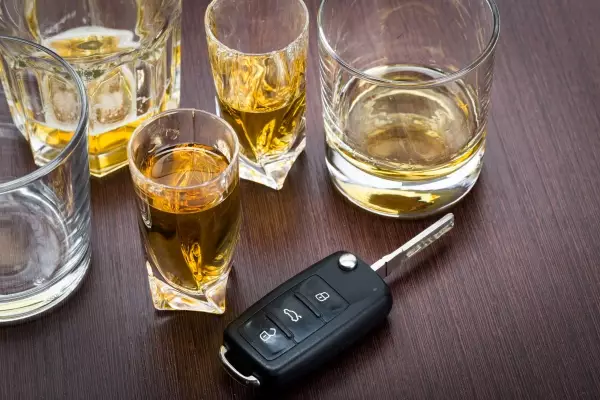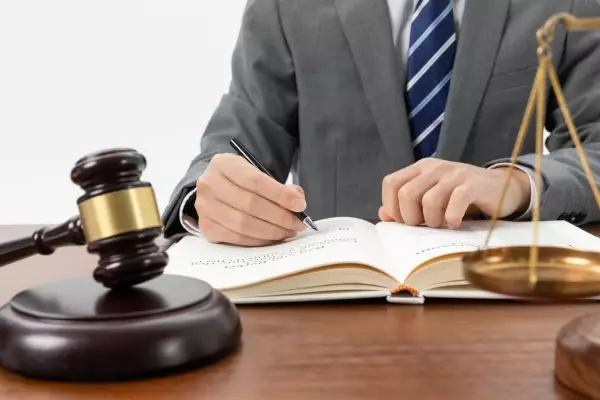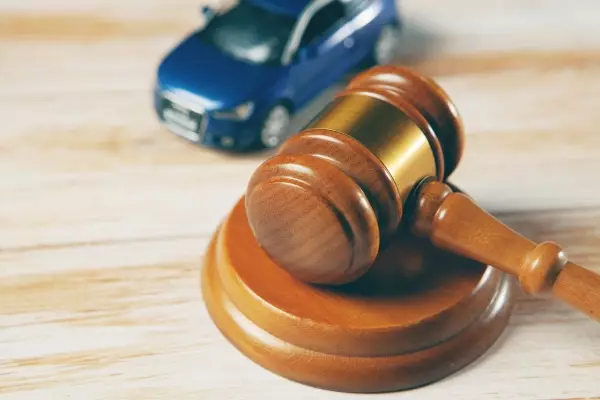Alcohol-related crimes are nothing new, especially considering the long history of alcohol consumption and its impact on society. However, with so many people consuming alcohol responsibly and in moderation, the number of people crossing the line is small.
However, there is an increase in certain types of crimes relating to alcohol. With that said, regardless of how responsible an individual is with their alcohol consumption, there might come a time when they're accused of breaking the law because of it.
For that reason alone, it's essential for anyone who drinks to understand common legal charges related to alcohol and their potential consequences.
Legal Charges Related To Alcohol Consumption
There are a variety of common legal charges related to alcohol that may require an assessment to determine the appropriate response of the court or possibly guidance in sentencing. These charges can range from minor offenses such as public intoxication or disorderly conduct to more serious offenses such as DUI or assault.
The specific charge will often dictate the type of assessment required and any other conditions that may be imposed on the offender. Substance abuse is common among those facing legal charges related to alcohol.
Public Drunkenness
One of the most common charges related to alcohol is public drunkenness. This can refer to any situation where someone is highly intoxicated, behaves in a disorderly manner in public, and interferes with the rights of others. This can include cases where an individual is extremely loud, disruptive, or otherwise impeding the right of those around them.
If the police officer feels that an individual is impaired to the point where they pose a threat to themselves or others, they can be arrested for public drunkenness. They can also be charged with public intoxication if drunk while in a public area.
While public drunkenness is a common charge, it's not something to be taken lightly. This can be a severe offense, and individuals charged with it can face significant legal penalties. A judge can sentence someone to jail for this, and the penalties for this offense can become even more severe if it's a repeat offense.
Disorderly Conduct
Another common alcohol-related charge is disorderly conduct. This charge can be applied when an individual is intoxicated and causing a disturbance in a public place. In most cases, disorderly conduct will only result in a citation and no jail time. However, if an individual has multiple disorderly conduct offenses, they may be required to complete an alcohol assessment.
There are several different ways this can happen, and the severity of the offense can vary from case to case. However, it's worth noting that disorderly conduct charges can also be applied when someone is intoxicated in a place where alcohol is prohibited.
Disorderly conduct is also a charge that can be applied to both minors and adults. While minors can face this charge, it's often applied to teenagers out drinking and disturbing the peace.

Driving Under The Influence
Driving under the influence (DUI) is one of the most serious alcohol-related charges involving motor vehicles. This charge can be applied when an individual is caught driving while intoxicated. DUI charges can result in jail time, fines, and your driver's license suspension. In addition, you will be required to complete an alcohol assessment for a DUI conviction. DUI arrests can also lead to an automatic suspension of your commercial driver's license.
The amount of alcohol that needs to be consumed to cross this line varies from person to person. While it's important to remember that driving under the influence is also a crime when someone is sober, it's often charged when intoxicated.
Police officers can charge individuals who appear drunk while driving with this offense, which can worsen if they cause a collision while driving under the influence. In many cases, those charged with driving under the influence will be required to take a breathalyzer or blood test.
Alcohol testing will also be required for anyone who is convicted of DUI. If their results show that they've consumed enough alcohol to be considered legally intoxicated, they can be arrested for this offense. An ignition interlock device could be installed in the motor vehicle of anyone convicted of driving under the influence.
Assault
Assault can sometimes be another serious alcohol-related charge. This charge can be applied when an individual becomes violent while intoxicated and causes injuries to another person. Assault charges can result in jail time, fines, and a criminal record. If you are convicted of assault while under the influence of alcohol and/or drugs, typically you must complete an alcohol assessment.
While assaults are often associated with physical harm, this isn't always the case. For example, someone can be charged with this offense if they verbally threaten another person. In many cases, assaults that occur after consuming alcohol will be charged as alcohol-related assaults.
This is especially true if both parties are intoxicated and the assault arose from a dispute. It's not uncommon for two intoxicated people to get into an argument that leads to an assault charge. Their criminal history and the severity of the injuries will often dictate the penalties for this offense.
Addiction treatment may be recommended for anyone convicted of an alcohol-related assault. This is because the court will want to ensure that the individual gets the help.
Distilling And Manufacturing Illegal Alcohol
The government heavily regulates controlled substances, and alcohol is no exception.
This is the process of producing alcoholic beverages that aren't approved for public sale. In many cases, this refers to the production of moonshine. Other types of illegal alcohol include homemade wine and beer made in unapproved facilities.
These types of alcohol are illegal for several reasons. For example, they don't undergo the same safety regulations as commercial alcohol. They may also be produced in unsanitary conditions, and they're often made with poor ingredients.
In some cases, distilling or manufacturing illegal alcohol can be charged as a minor offense. In other cases, it can be considered a felony, depending on the situation.
Possession Of An Illegal Substance While Drinking
This refers to any situation where someone is drinking while they have an illegal substance on their person. The amount of substance that needs to be present on a person's body to warrant an arrest for possession can vary.
However, it's important to note that, in some cases, police officers can use the smell of alcohol as probable cause to search you for illegal substances. While it's relatively common for police officers to charge individuals possessing an illicit substance and drinking, the penalties for both offenses vary.
For example, if someone is charged with possession and drinking, the possession charge will likely be more severe.
A substance abuse evaluation is standard in these cases as the courts determine the best way to deal with the offender.
Possession Of Alcohol By A Minor
In most states, it's illegal for minors to possess alcohol. The only exception to this rule is if the minor is in the presence of a parent or guardian. In some cases, possession of alcohol by a minor can be charged as a misdemeanor.
However, depending on the situation, it can also be considered a felony. For example, if a minor is caught in possession of alcohol multiple times, they can be charged with a felony. Additionally, if a minor is caught selling alcohol, they can also be charged with a felony.
Open Container Laws
While not a specific charge, open container laws are worth mentioning when discussing alcohol-related charges. These laws refer to any situation where an individual drinks alcohol while they have an open container of it.
In many states, it's illegal to drink alcohol while driving, sitting in the passenger seat of a vehicle, or otherwise operating a motorized vehicle. In these situations, an open container of alcohol would be considered illegal.
However, these laws vary from state to state, so it's essential to be familiar with the open container laws in your area and follow them. Failure to do so can result in an alcohol-related charge.
Inpatient Treatment Program
An inpatient treatment program is a type of alcohol rehabilitation that requires an individual to live at the facility for the duration of the program. This is different from an outpatient program, which allows people to live at home while they attend treatment. The treatment process for an inpatient program typically lasts 30 to 90 days.
Inpatient treatment programs are usually most effective for people with severe addiction or who have relapsed multiple times. This allows them to avoid triggers and focus on their recovery.
Outpatient Treatment Program
An outpatient treatment program is alcohol rehabilitation, allowing people to live at home while attending treatment. The treatment process for an outpatient program typically lasts 12 weeks.
Outpatient treatment programs are usually most effective for people with mild to moderate addiction. This is because it allows them to continue living their everyday lives while they recover.
Conclusion
There may be a significant correlation showing an increase in crime associated with increased alcohol consumption amongst some populations. . With that in mind, It would be wise to understand how to reduce your risks if you are choosing to use alcohol.
If you are already dealing with a legal charge or any pattern of negative consequences stemming from your use of alcohol you may want to speak to a therapist or in more serious cases you may be required as part of your sentence to seek outpatient therapy or enroll in an alcohol treatment program to satisfy sentencing requirements. Ultimately, these steps may help you get the treatment and support, helping you avoid further personal and legal problems associated with excessive alcohol use.
If you have been charged with an alcohol-related offense, it's a good idea to talk to a lawyer as soon as possible. They can provide you with advice and explain your options moving forward.



